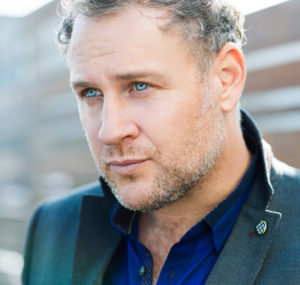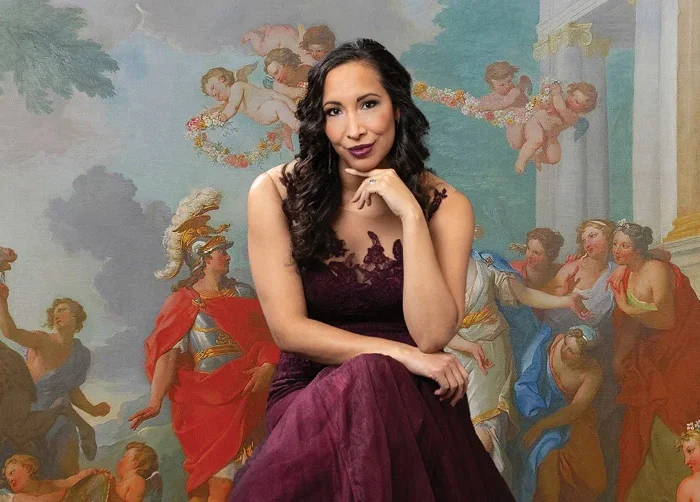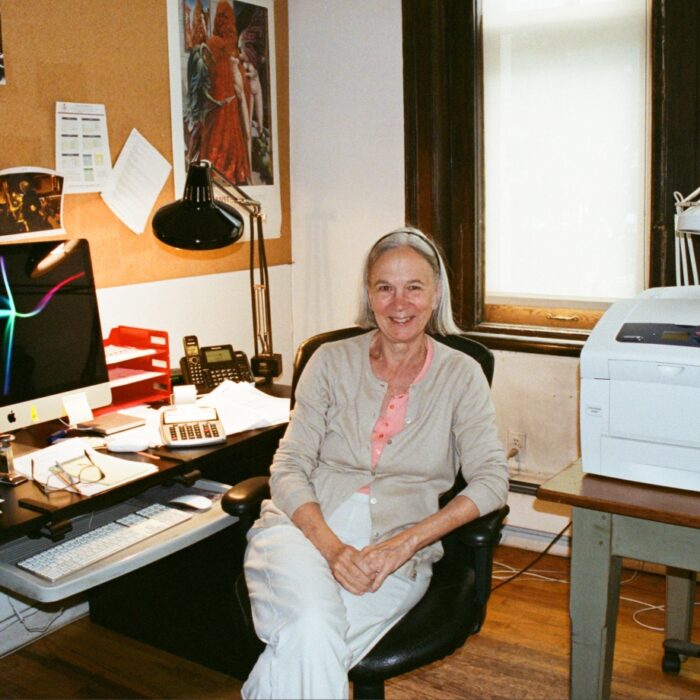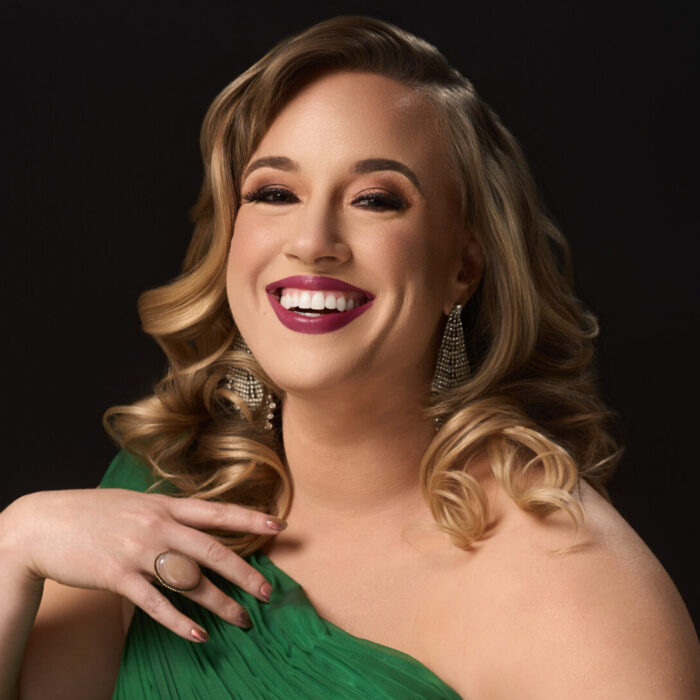
‘You Get What You Put Out Into the Universe:’ Baritone Lucas Meachem On His Highs and Lows, Diversity in Opera, & COVID’s Impact on Young Artists
By Chris RuelIn late May, the COVID-19 pandemic relented for a spell, enticing parts of the United States to reopen after weeks of lockdown. Memorial Day weekend, the unofficial start of summer in the States, was in full swing. 2020 had a disastrous start, but big cities like New York had the virus somewhat contained. Worldwide, the insidious threat of sickness and death receded ever so slightly.
Then, on May 25, between 8 and 9:00 p.m., U.S. Central Time, an unarmed Black man named George Floyd was killed by former members of the Minneapolis Police as they sought to arrest him. The streets of the city erupted in angry protests. Americans had seen too many young Black men die in a similar fashion and, after weeks of social distancing, protesters donned masks, took to the streets, and marched arm-to-arm as they called for justice. In the blink of an eye, a second massive shoe had dropped; in the midst of a pandemic, America, and the world, had come to a place of reckoning around race relations.
The 2016 Grammy Award-winning baritone Lucas Meachem—a Minneapolis resident—watched events unfold within his city, posting early photos on his Instagram account of the mural painted in honor of Floyd. Based on his captioning of the images, you could tell he was heartbroken as he pleaded:
“Please stop killing Black people. Please stop burning my city.”
Suddenly, Meachem had a trifecta of difficult situations to navigate—his health and that of his family, the cancellations of his upcoming performances, and the massive racial justice movement birthed in his city.
Meachem didn’t mince words as we began our conversation.
“The most important thing is this: The systemic racism in the United States needs to come to an end. We need to treat people based on their actions, not the color of their skin. It is different to watch things unfold on TV versus driving down and seeing entire blocks on fire and smoldering with water coming out of every floor. It hits home—the sadness of the entire thing. The protests and movement are necessary. They show the rightful anger of a populace that has been underrepresented and poorly treated for a long time.
“I hope that people are getting the message that Black lives matter.”
Porch Concert
In the middle of the chaos of the spring and early summer, Meachem gave hope and beauty to those living in proximity to his home by singing a “porch concert.” His impromptu stage was his balcony, and his accompanist was his wife Irina, a pianist and voice coach.
“These concerts were about my artistic soul being full to the point of bursting. I just had to do something. I had to get out there and perform for someone; the concert seemed like a nice way to do that. I put up a sign at the entrance to our townhome complex, so it was mostly neighbors. Across the street, there’s a senior living facility. Some of the residents walked over and watched.
I didn’t know many of my neighbors because I travel about 10 months out of the year. Ever since I’ve done the concert, everybody’s my best friend. It’s pretty great. I got more out of it than I ever thought I would and that’s just kind of the world in a nutshell; you get what you put out into the universe. I’ve tried to put out some goodness and hope, and hope came back to me. Some people brought flowers and envelopes.”
Meachem’s concerts were picked up by local media and syndicated. I found out about the concert while scrolling Apple News. The baritone had a bully pulpit—or porch—from which he could bring opera to those around him near and far.
“We wanted it to be accessible by people that might not have ever heard opera before. I sang some pieces in English, like ‘The Impossible Dream,’ and then some pieces in Italian to give people exactly what they were expecting. I bought a karaoke machine for my shelter-in-place. I used that as my speaker when I was speaking. Then I told everybody, opera is different because we don’t use microphones. When I put the microphone down and sang, everybody was like, Whoa!”
A Toreador in Torino
After singing on the Italian opera stage in 2008, twelve years would pass before Meachem returned to the Teatro Regio di Torino to sing his role debut as the swaggering toreador, Escamillo, in Bizet’s “Carmen.”
“Singing in Torino is great. It’s a beautiful theater in a beautiful town. The only downside was that my wife and son were not able to join me; that was tough. I hadn’t debuted a role in some time, and then all of a sudden, I had four debuts this season. The reason it took me so long to debut Escamillo is that I avoided the role for a very long time, it’s one of those roles that I would sing and then think I’m not necessarily better than other people.
It took my voice maturing to a point where my timbres darkened. I finally felt ready for it. Some people might think of Escamillo as the ‘Toreador Song,’ and that’s about it. But it really is a very in-depth role. You have to be both vocally and acting proficient. Because you have a short amount of time on stage, you need to bring this amazing swagger and ‘everyman’ sort of feeling. You need to give a lot while you’re on stage.”
Meachem was scheduled to sing Rodrigo in Verdi’s “Don Carlo” at The Dallas Opera, his second debut during the 2020 – 2021 season. Meachem stated that the “Don Carlo” cancellation was the hardest with which he’s had to deal.
“Rodrigo solidifies me as a bel canto Verdi baritone. It signals that I’m stepping up a rung on the operatic ladder. I’ve sung Don Giovanni and The Count just about everywhere. Stepping into this sort of bel canto Verdi rep sends a message: ‘Hey, casting director, hey world, I’ve arrived.’
In an operatic career, you can’t sing the same thing from start to finish if your career spans 40 years. I’m happy to accept every Don Giovanni that comes down the pipe; it’s a wonderful role and I love singing it, but at some point, everyone’s heard me sing Don Giovanni and they’re ready for the next young baritone to come up. I had to take things to the next level.
That’s exactly where I am now in my career—moving into young Verdi. It’s crazy because in this season alone I’ve been on the cusp of singing three amazing bel canto roles—Enrico in ‘Lucia di Lammermoor,’ Rodrigo in ‘Don Carlo,’ and the Duke of Nottingham in ‘Roberto Devereux’—but all three have been moved or canceled.”
New Horizons
The Dallas Opera has given the baritone the opportunity to originate the role of Jean-Dominique Bauby in “The Diving Bell and the Butterfly.” The opera recounts the story of Bauby, the famed editor of “Elle” magazine who suffered a severe stroke, leaving him paralyzed and unable to speak. The only movement Bauby was capable of was blinking one eye. Bauby went on to write a book—“The Diving Bell and the Butterfly”—about his feeling “locked in” like a diver at the bottom of the sea, while his mind wanders freely like a butterfly.
The opera was written by British composer Joby Talbot and American librettist Gene Scheer and is slated to open in early-March 2021. The cast includes Sasha Cooke, Clifton Forbis, Andrew Bidlack, Richard Croft, Deanna Breiwick, and Andriana Churchman. Emmanuel Villaume will conduct.
“One of the best things about ‘The Diving Bell and the Butterfly’ is that we have Joby Talbot and Gene Scheer. Scheer is one of my favorites; I think he’s one of the most talented people on the planet.”
I asked Meachem about the highly unique challenge of playing a role in which his sole movement is blinking his eye.
“Well, luckily we’re provided with many flashbacks that tell the story of how he got to that point in his life. There’s going to be some amazing stagecraft and stage work in the piece, but I want to keep it a secret. I think it’s better for people to see it themselves in order to understand the incredibleness of this piece.”
In 2018, Meachem opened the Salzburger Festspiele singing the role of Jesus in Penderecki’s “St. Luke Passion,” a haunting, stunningly brilliant piece of 20th-century music. On June 26, the live recording of the performance was released and remains available for streaming on all major platforms. Joining Meachem onstage were soprano Sarah Wegener and bass Matthew Rose. Kent Nagano led the Orchestre symphonique de Montréal.
“First of all, performing with the Orchestre symphonique de Montréal and Kent Nagano is always a pleasure. But then to make my debut at Salzburger Festspiele and open the entire festival, was such an honor. I’ve always wanted to sing in Salzburg. My people on my father’s side are actually from Salzburg and I’ve visited quite a few times because I love it. When I step off the plane there, the air smells like home to me.
A quick, funny story is that after I sang at the Salzburger Festspiele, I had a second festival gig in Grafenegg singing the Britten ‘War Requiem.’ I learned the Penderecki first, and then the Britten. All of a sudden Britten felt like I was reading solfege. Penderecki’s composition was exceedingly difficult to learn because the pitches don’t add up in a Mozartean way. It’s kind of like a crossword puzzle for your musical brain, as far as sight-reading goes. When I finished the Salzburg performance, there was a little group of fans—I assume they were fans—shouting, ‘Lucas! Lucas!’ while pointing at me. I waved back at them and they screamed. I had never had that experience before in my life.”
Celebrating Diversity
Meachem has just finished recording a solo album featuring American art songs on the theme of resilience. The album was recorded with his wife accompanying on piano and strives to represent People of Color, the LGBTQ+ community, and women. Meachem spoke about the lack of diversity in opera and classical music.
“If classical music and opera are going to exist today, then it has to exist for everyone. And what I mean by that is that America is a melting pot of people. And if we only have music by straight white men, then we are not representing the melting pot.
Opera is a hard art form as it is; you’ve got to have a great voice and you’ve got to be a great actor. It’s tough enough to succeed without other sorts of landmines and slippery surfaces for People of Color, women, and the LGBTQ+ community to trip on and not have the same opportunities as other people. There should be a change in the way that the opera world is run.
A lot of negative stereotypes have been propagated in the opera world for a long time. ‘Madame Butterfly,’ ‘Porgy and Bess,’ ‘Otello,’ and other operas that speak about people of a certain ethnicity, were important to talk about in their time and they remain important to talk about in our time. Opera is always relevant.
‘The Marriage of Figaro’ was a slap in the face to a lot of the aristocracy. They watched, thinking, ‘Wait a second, that character is going to get the better of a count?’ That was big stuff at the time. We need to speak to what’s happening now in our world, rather than living in the past.”
Meachem wanted to discuss a number of topics that extended beyond his canceled schedule, albums, and impromptu concerts. While it’s clear those things are very important and special, it was also apparent in my conversation with Meachem that he thinks about the big picture and places people first. He has concerns about the future of the arts, and in particular, he worries about young artists attempting to start careers in what may be the most difficult economic time since the Great Recession of 2008.
“I want to speak up for artists. During this pandemic, people were talking about essential versus non-essential. When it comes down to labeling things like that and to put arts into the non-essential category while cutting funding at this critical moment, I think people really need to ask themselves what got them through Covid-19. I guarantee the answer will be the love of family, friends, art, and music in whatever form. Television, movies, books, radio programs: these are all the products of artists. Let’s remember that. The pandemic will affect the opera and theater world for a lot longer than any other type of work. Along with sporting events, live performances are going to be one of the last to put butts in seats. That’s sad.
Young artists and young professionals are going to be hit hard. I lived through this in 2008 when the recession hit. There was almost a two-year window where people were not hiring mid-level-fee singers, so they hired the cheapest singers and the most expensive singers. A rung on the career ladder got removed because, all of a sudden, it didn’t make sense financially. And I’m really worried it will happen again. In an effort to conserve money, opera houses are going to find ways to cut corners and it’s going to cost singers jobs. This is a hard business and we need to make sure that we keep these artists in our thoughts because it’s going to be tough for them. In 2008, I was lucky to have established my career a few years before the recession hit. If I was coming out of a young artist program in 2009, I don’t think I would have had the upswing I had, and it would have taken a lot longer for me to get where I am. So, I want us to remember them. I also want to praise the companies that have paid artist’s fees—even if it was just a percentage. That money is helping people survive.”
As we wrapped up our time together, Meachem returned to the theme of social justice and the importance of putting the phone down and moving beyond passive activism.
“We need more than hashtags. We need more than a social media presence. I posted a new blog article on my site and it’s not by me, but by a great young African American baritone named Will Liverman. I said, ‘Will, what do you want to say? What do you want to write about?’ He chose to write about his experience as a young Black man growing up in Virginia Beach. I encourage everyone to read the article. We need people to do something about social justice instead of just looking good on social media, because, at the end of the day, that’s actually not doing anything.”



